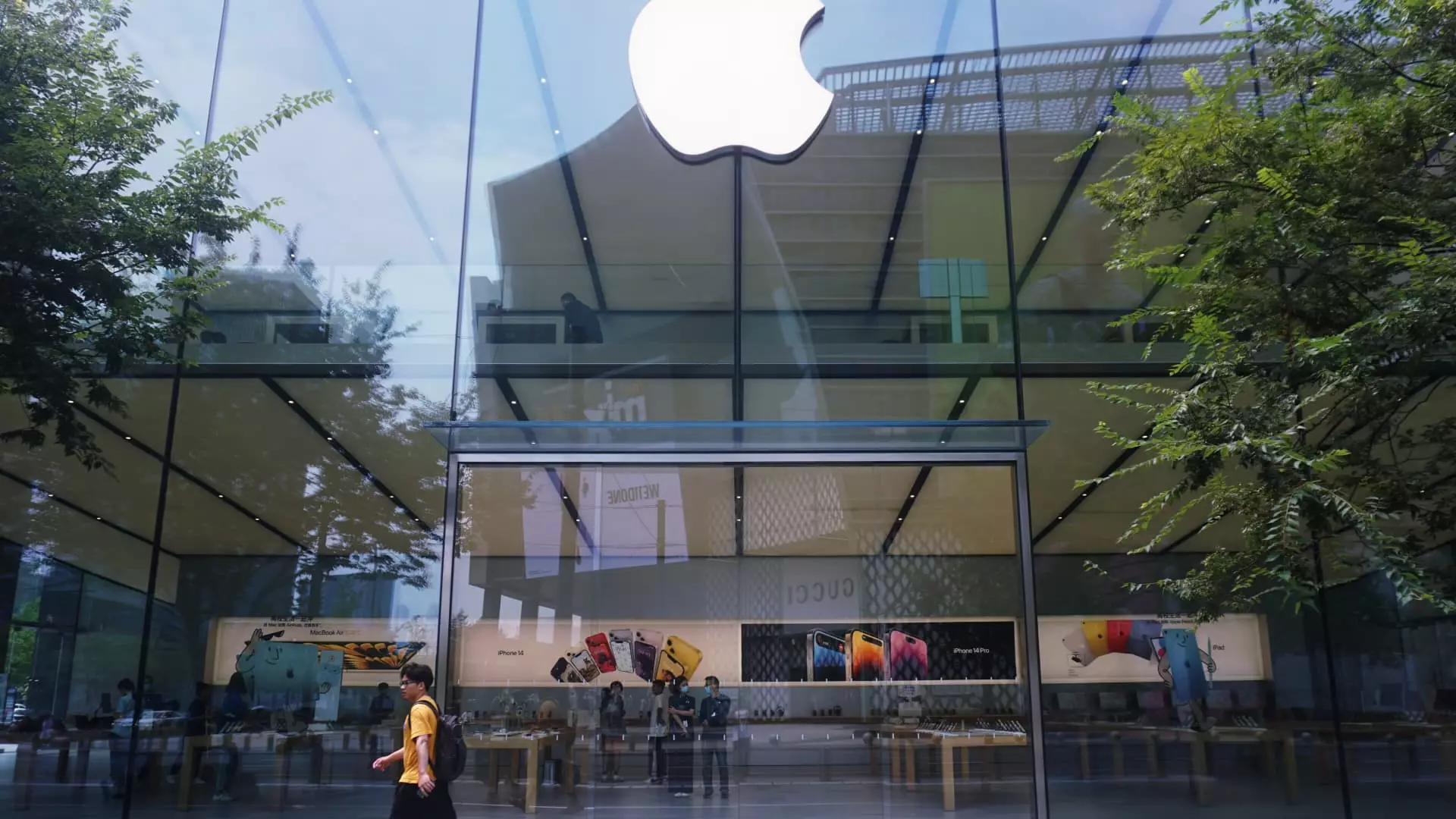In recent years, the tech industry has eagerly anticipated Apple’s venture into foldable smartphones, a move seen by many as inevitable yet delayed. While Apple maintains a staunch silence on the matter, the underlying supply chain signals a profound shift underway—one that could redefine the industry’s power balance. Central to this narrative is Lens Technology, a Chinese glass manufacturer that is increasingly poised to become a dominant player in the foldable smartphone revolution.
The company’s recent surge, fueled by a hastily executed Hong Kong IPO that raised nearly $610 million, underscores its aggressive growth strategy. Investors like hedge fund luminary Steve Cohen have swiftly taken large stakes, signaling strong confidence in Lens Tech’s potential. The company’s expansion plans target the production of ultra-thin glass specifically tailored for foldable displays—a market projected to expand exponentially over the coming years. This is not just about supplying glass; it’s about positioning themselves at the intersection of a technological paradigm shift.
This scenario exemplifies how Chinese manufacturers are adapting rapidly—and often silently—to become indispensable players in global tech supply chains. Their focus on capacity expansion, especially in markets outside China such as Vietnam and Mexico, indicates an understanding that economic and geopolitical risks may divert manufacturing away from traditional centers. Such diversification plans are a calculated move, enhancing resilience while embedding themselves firmly within the future of mobile innovation.
The Ambiguous Role of Apple and the Broader Industry
While Apple’s upcoming foldable remains unconfirmed publicly, industry insiders and analysts like Ming-Chi Kuo maintain a high level of confidence that such a device will materialize soon. Given Apple’s stature and influence, this has created a ripple effect—shaping the expectations of suppliers like Lens Tech. The manufacturer’s claim of supporting “middle and high-end foldable smartphones” positions it as a critical partner for any big-name player wanting to enter or dominate that space.
However, Apple’s silence and cautious approach raise questions about how much of this supply chain development is driven by genuine collaboration or opportunistic positioning. The reality is that firms like Lens Tech seem to be preparing for multiple scenarios: one where Apple leads the foldable charge, and others where Chinese or international startups innovate in parallel. It’s a classic case of strategic ambiguity serving as both insurance and leverage; they do not depend solely on Apple but are positioning themselves to benefit broadly.
This decentralized approach, while savvy, also carries risks. Overreliance on uncertain future contracts can create vulnerabilities, especially in a market prone to rapid technological shifts and geopolitical tensions. Yet it’s a calculated gamble: they are betting that the market’s trajectory is undeniable, and they want to be the dominant suppliers when that shift occurs.
Market Dynamics and Power Shifts: Who Really Benefits?
The broader economic landscape reveals a complicated web of interests and incentives. The Hong Kong IPO symbolizes China’s strategic ambition to take greater control of high-tech manufacturing and innovation, even as U.S.-China tensions escalate. While some analysts caution about pricing fluctuations and market pressures—highlighted by Lens Tech’s recent stock dip—they also recognize the immense growth potential.
Organizations like UBS and Citi are optimistic, emphasizing the forecasted earnings boosts from foldable screens, AI glasses, and robotics. Yet, behind these projections lies a subtle assertion: the next wave of technological dominance might not come from Western giants but from well-funded Chinese firms willing to embrace aggressive expansion and innovation. Countries acquiring new manufacturing capacities aim to reduce dependence on Western supply chains, an imperative driven by economic sovereignty and security concerns.
Power in this context is gradually shifting away from traditional Western tech monopolies towards emerging Chinese conglomerates. These companies are stacking their chips early—expanding factory footprints, forging international partnerships, and investing heavily in R&D. The implications are profound: if Lens Tech successfully diversifies its customer base beyond Apple, it could threaten the existing dominance of American tech suppliers and reshape global supply chains significantly.
The Political and Economic Implications of a Changing Supply Chain
As China’s companies like Lens Tech deepen their roots globally, the geopolitical stakes escalate. The U.S. and its allies are already imposing tariffs and export controls, attempting to curtail China’s technological ascent. Yet, these measures often have counterproductive effects—fueling the very self-sufficiency and resilience Chinese corporations aim for.
The focus on developing factories in Vietnam and Mexico underscores a strategic shift: supply chains are becoming more regional and multipolar. This transition challenges the traditional narrative of Western technological supremacy. It also raises questions about how Western policymakers might respond—whether through innovations, tariffs, or strategic partnerships—to mitigate the declining influence of Western tech firms in key markets.
Within this complex dance of diplomacy and industry, firms like Lens Technologies symbolize both opportunity and challenge. They exemplify how Chinese industries are not merely following Western benchmarks but actively redefining them. Their technical advancements and strategic investments form a hidden backbone that could ultimately shift the balance of power in a direction more favorable to global diversification and economic sovereignty—core principles that any center-right liberal perspective should cautiously endorse.
In this evolving landscape, the future is less about the immediate profits from foldable screens and more about the long-term strategic positioning. Chinese manufacturers are emerging as power brokers, capable of shaping the rules of tomorrow’s technological economy—an intriguing prospect that demands both vigilance and strategic adaptation from Western stakeholders.

